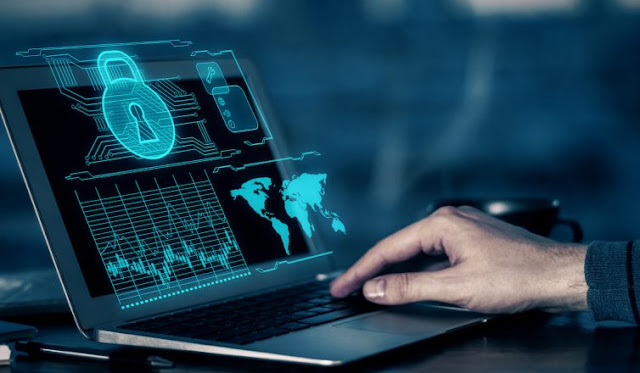Securing Data on a computer: The progress of computer technology is a double-edged sword. On the one hand, it gives us quick and easy access to various conveniences such as bank reports, favorite shopping centers, school records and health, and more. On the other hand, it can also provide equal access to those who are not supposed to get it. Although rare, hacking has become the biggest criminal disorder in computer history.
 |
| Securing Data on a computer |
Make no bones about it. There is nothing plain or funny about hackers. Today's hackers aren't the pimple-faced teenage rebels you might think of. Instead, this generation of hackers is an individual who is more likely to make a living by stealing the identity of an innocent and law-abiding individual, then selling that identity to someone else who wants to escape the system. And the only protection against these slums is prevention.
Computer security cannot be more important than today and that's why we take the time to introduce it to you. You can reduce the chance of experiencing identity theft by making your computer proof of hackers. All that is needed is small software and lots of common sense.
1. Install an anti-virus / anti-spyware program.
Anti-virus / anti-spyware software will stop malicious code from downloading and installing to your computer when you read the Internet. Known as a virus, worm, or spyware, this malicious code can destroy important files and make your computer only good for one thing: sending sensitive data back to the identity theft server.
2. Don't store sensitive data on your computer from the start.
If your computer is infected with a virus, worm, or piece of spyware, you can frustrate those responsible by not storing your personal information on your PC so that when and if your computer sends back data - it won't be worth anything. Hackers look for things like full names, social security numbers, telephone numbers, home addresses, work-related information, and credit card numbers. If these things are not saved to the computer, there is nothing to worry about besides returning your computer to a non-virus condition.
3. Don't open files without scanning them with anti-virus / anti-spyware programs.
In the past, the warning was to avoid opening files from people you don't know. Currently it's really not safe to open files from anyone (without scanning files) because that's how the virus spreads - through files - even accidentally. So even though your coworkers might have sent funny videos via email, it's not safer to open than videos downloaded from strangers. Secure and scan every file you download from the Internet or receive via email regardless of where it comes from.
4. Create a barrier between your computer and prying eyes.
Anti-virus / anti-spyware programs are only effective after effects. But you can prevent identity theft by installing a firewall. A firewall is software that checks all data that enters and exits a computer and then blocks what does not meet certain security criteria (user-defined rules) .1
5. Don't click on website links in spam messages.
In an effort to get personal information, some spam senders will send an email asking you to click the link. Email messages are often disguised as important messages from well-known online companies, and they often try to scare their readers into clicking links with the threat of account closure. Sometimes these links are harmless and try to make readers want to voluntarily provide personal information (credit card numbers), but at other times the link tries to download malicious software to the computer.
Your best protection against computer crime is your own knowledge. Hopefully the suggestions above will encourage you to take appropriate action and protect your computer with the recommended tools. By doing that, you will not only protect yourself, you will prevent the spread of this evil activity and protect others at the same time.






0 comments